Drug Catalog - Product Detail
ZOLMITRIPTAN ODT 2.5 MG 6CT
| NDC | Mfr | Size | Str | Form |
|---|---|---|---|---|
| 68462-0499-76 | GLENMARK PHARMACEUTICALS | 6 | 2.5MG | TABLET |
PACKAGE FILES

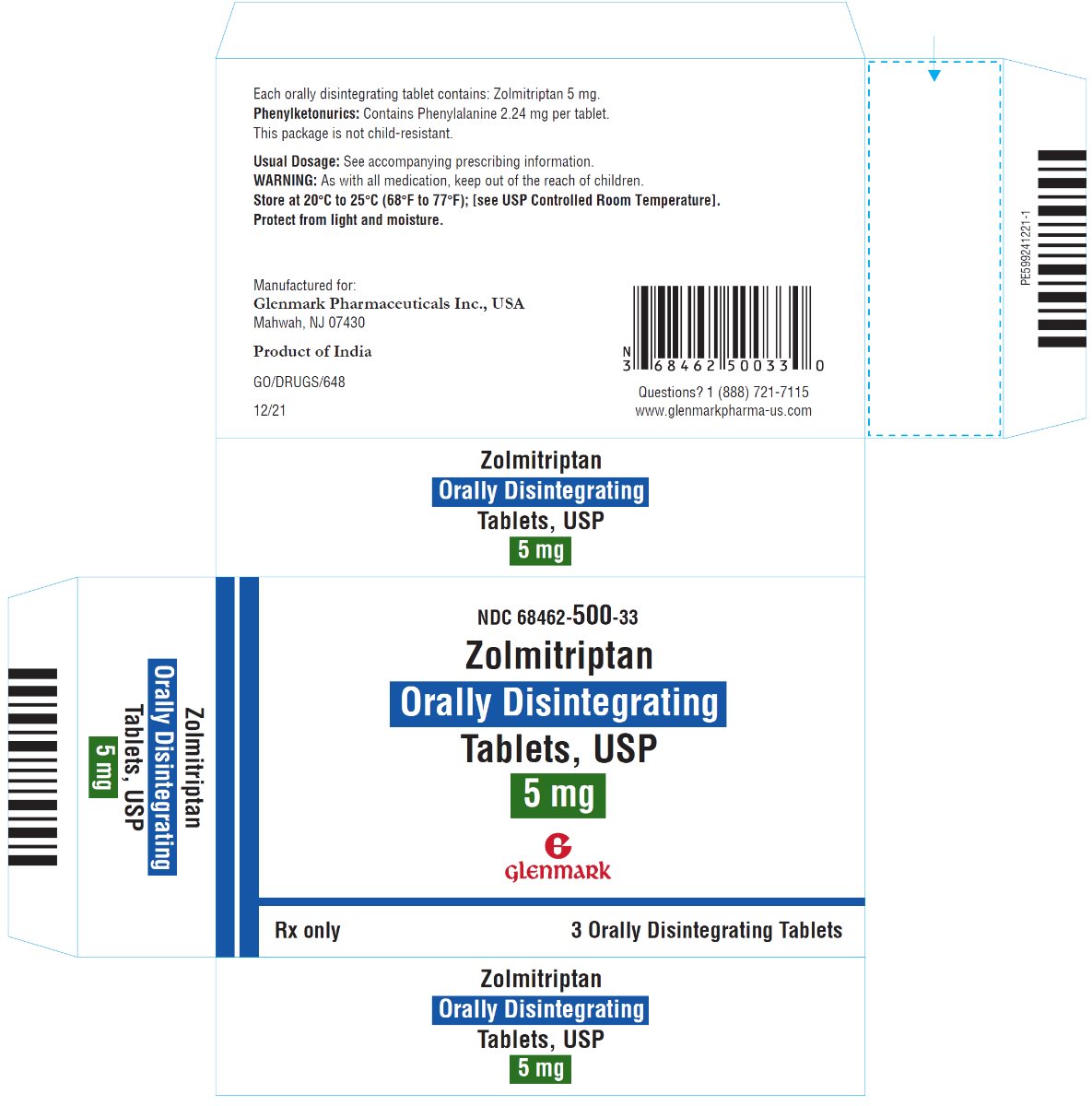
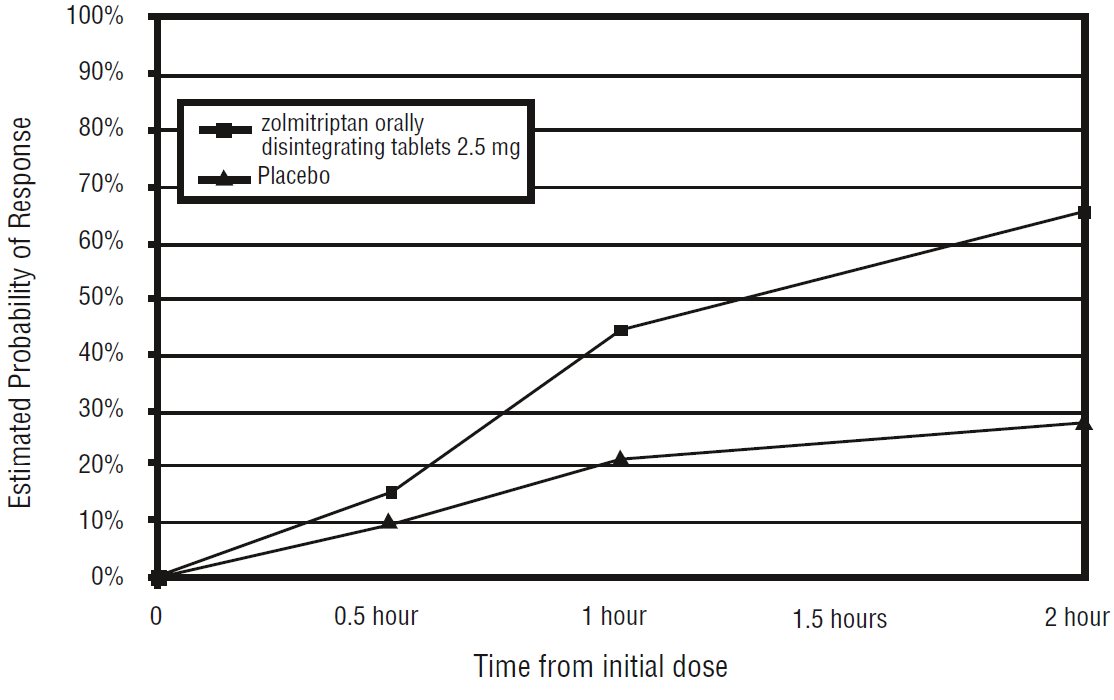
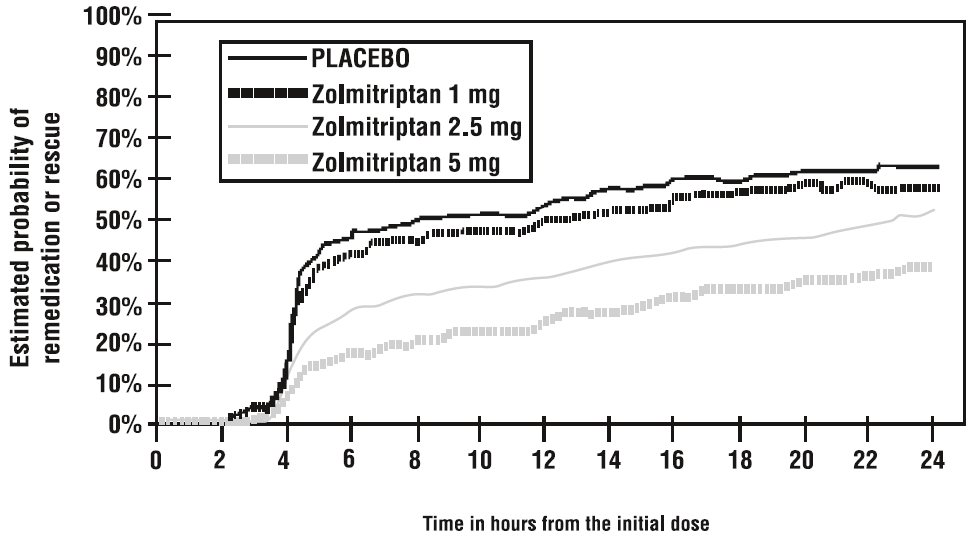
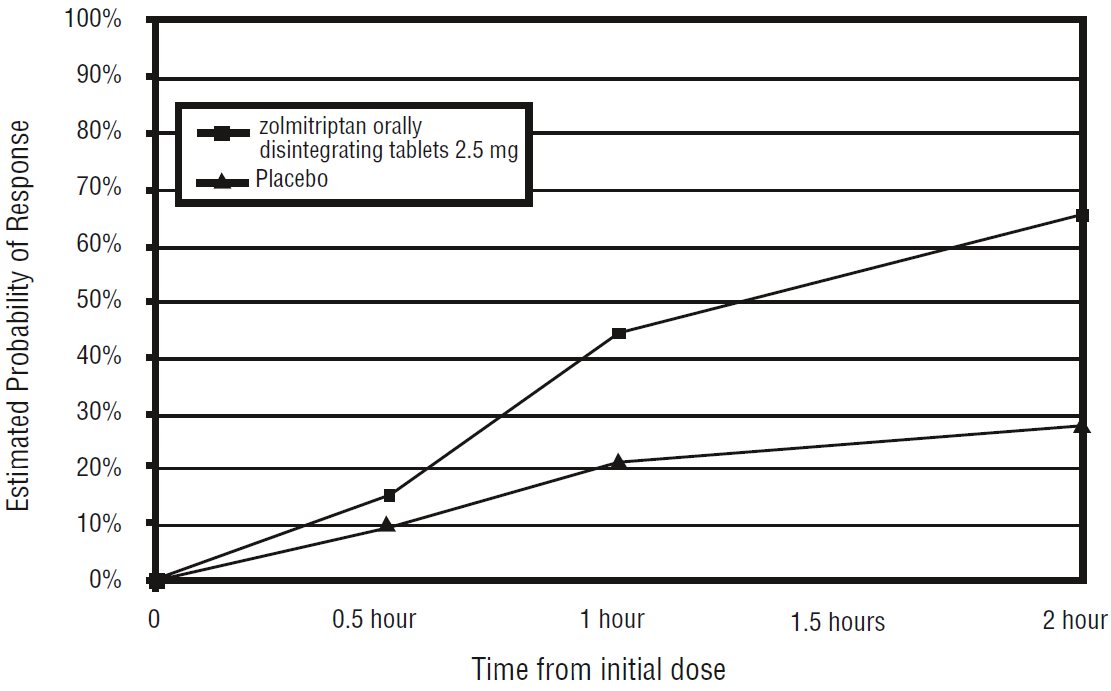
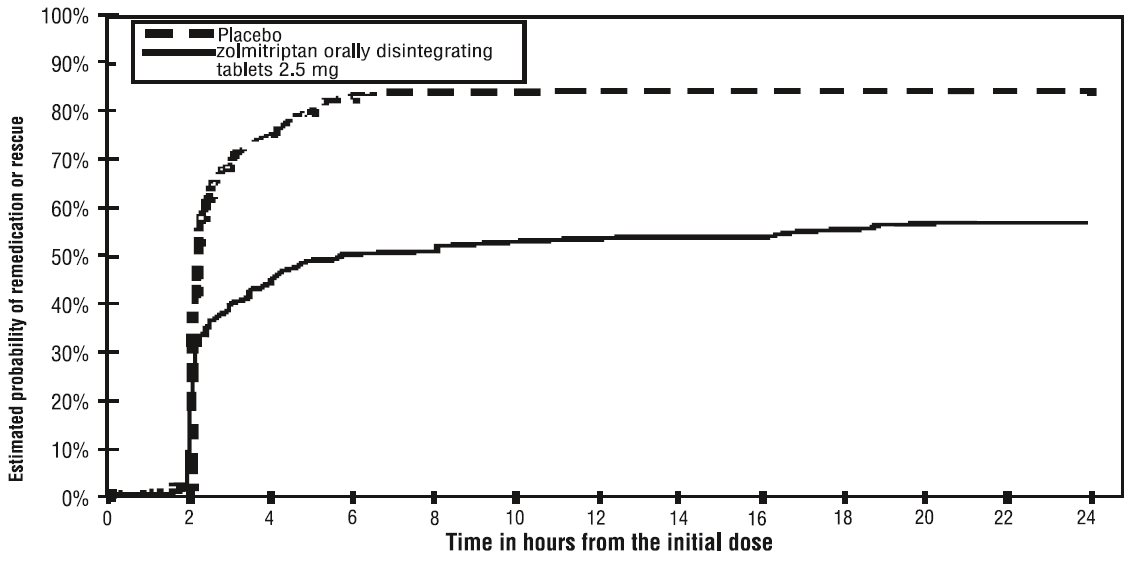

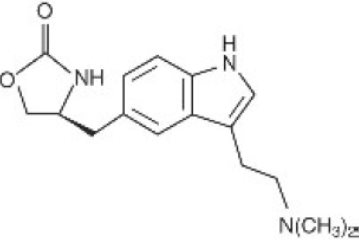
Generic Name
ZOLMITRIPTAN
Substance Name
ZOLMITRIPTAN
Product Type
HUMAN PRESCRIPTION DRUG
Route
ORAL
Application Number
ANDA202560
Description
11 DESCRIPTION Zolmitriptan Orally Disintegrating Tablets, USP contain zolmitriptan, which is a selective 5-hydroxytryptamine 1B/1D (5-HT 1B/1D ) receptor agonist. Zolmitriptan is chemically designated as (4S)-4-[[3-[2-(dimethylamino)ethyl]-1H-indol-5-yl]methyl]-2-oxazolidinone and has the following chemical structure: The molecular formula is C 16 H 21 N 3 O 2 , representing a molecular weight of 287.36 g/mol. Zolmitriptan is a white to off-white powder that is soluble in methanol and acetone; insoluble in water. Zolmitriptan Orally Disintegrating Tablets, USP are available as 2.5 mg and 5 mg white uncoated tablets for oral administration. The orally disintegrating tablets contain aspartame [see Warnings and Precautions ( 5.9 ) ], colloidal silicon dioxide, crospovidone, magnesium stearate, mannitol, microcrystalline cellulose, peppermint flavor and talc. The peppermint flavor contains corn starch. structure
How Supplied
16 HOW SUPPLIED/STORAGE AND HANDLING ZolmitriptanOrally Disintegrating Tablets, USP 2.5 mg - White to off-white, round tablets debossed with ‘F7’ on one side and plain on the other side are supplied in cartons containing a blister pack of 6 unit-dose tablets (NDC 68462-499-76) Zolmitriptan Orally Disintegrating Tablets, USP 5 mg - White to off-white, round tablets debossed with ‘F11’on one side and plain on the other side are supplied in cartons containing a blister pack of 3 unit-dose tablets (NDC 68462-500-33) Store zolmitriptan orally disintegrating tablets at 20°C to 25°C (68°F to 77°F); [see USP Controlled Room Temperature]. Protect from light and moisture.
Indications & Usage
1 INDICATIONS AND USAGE Zolmitriptan orally disintegrating tablets are indicated for the acute treatment of migraine with or without aura in adults. Limitations of Use • Only use zolmitriptan orally disintegrating tablets if a clear diagnosis of migraine has been established. If a patient has no response to zolmitriptan orally disintegrating tablets treatment for the first migraine attack, reconsider the diagnosis of migraine before zolmitriptan orally disintegrating tablets are administered to treat any subsequent attacks. • Zolmitriptan orally disintegrating tablets are not indicated for the prevention of migraine attacks. • Safety and effectiveness of zolmitriptan orally disintegrating tablets have not been established for cluster headache. Zolmitriptan orally disintegrating tablets are a serotonin (5-HT) 1B/1D receptor agonist (triptan) indicated for the acute treatment of migraine with or without aura in adults ( 1 ) Limitations of Use : • Use only after a clear diagnosis of migraine has been established ( 1 ) • Not indicated for the prophylactic therapy of migraine ( 1 ) • Not indicated for the treatment of cluster headache ( 1 )
Dosage and Administration
2 DOSAGE AND ADMINISTRATION • Recommended starting dose: 1.25 mg or 2.5 mg ( 2.1 ) • Maximum single dose: 5 mg ( 2.1 ) • May repeat dose after 2 hours if needed; not to exceed 10 mg in any 24-hour period ( 2.1 ) • Do not break zolmitriptan orally disintegrating tablets ( 2.2 ) • Moderate or Severe Hepatic Impairment: 1.25 mg recommended ( 2.3 , 8.6 ) 2.1 Dosing Information The recommended starting dose of zolmitriptan orally disintegrating tablets is 1.25 mg or 2.5 mg. The 1.25 mg dose can be achieved by manually breaking the functionally-scored 2.5 mg tablet in half. The maximum recommended single dose of zolmitriptan orally disintegrating tablets is 5 mg. In controlled clinical trials, a greater proportion of patients had headache response following a 2.5 mg or 5 mg dose than following a 1 mg dose. There was little added benefit from the 5 mg dose compared to the 2.5 mg dose, but adverse reactions were more frequent with the 5 mg dose. If the migraine has not resolved by 2 hours after taking zolmitriptan orally disintegrating tablets, or returns after a transient improvement, a second dose may be administered at least 2 hours after the first dose. The maximum daily dose is 10 mg in any 24-hour period. The safety of zolmitriptan orally disintegrating tablets in the treatment of an average of more than three migraines in a 30-day period has not been established. 2.2 Administration of Zolmitriptan Orally Disintegrating Tablets Instruct patients not to break zolmitriptan orally disintegrating tablets because they are not functionally-scored. Administration with liquid is not necessary. Orally disintegrating tablets are packaged in a blister pack. Instruct patients not to remove the tablet from the blister until just prior to dosing. Subsequently, instruct patients to peel the blister pack open, and to place the orally disintegrating tablet on the tongue, where it will dissolve and it will be swallowed with the saliva. 2.3 Dosing in Patients with Hepatic Impairment The recommended dose of zolmitriptan orally disintegrating tablets in patients with moderate to severe hepatic impairment is 1.25 mg (one-half of one 2.5 mg zolmitriptan tablet) because of increased zolmitriptan blood levels in these patients and elevation of blood pressure in some of these patients. Limit the total daily dose in patients with severe hepatic impairment to no more than 5 mg per day. The use of zolmitriptan orally disintegrating tablets is not recommended in patients with moderate or severe hepatic impairment because these orally disintegrating tablets should not be broken in half [see Use in Specific Populations ( 8.6 ), and Clinical Pharmacology ( 12.3 ) ] . 2.4 Dosing in Patients taking Cimetidine If zolmitriptan orally disintegrating tablets are co-administered with cimetidine, limit the maximum single dose of zolmitriptan orally disintegrating tablets to 2.5 mg, not to exceed 5 mg in any 24-hour period [see Drug Interactions ( 7.5 ), Clinical Pharmacology ( 12.3 ) ].
